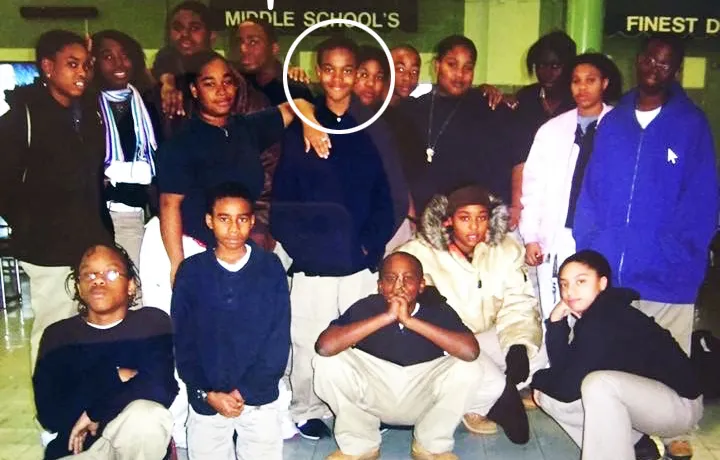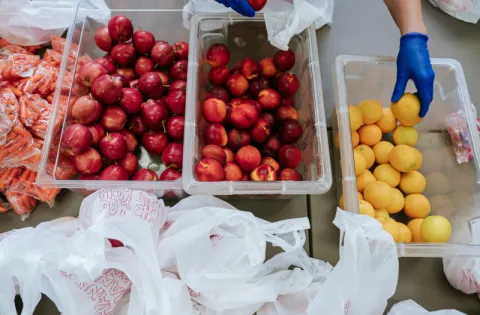As part of our celebration of Black History Month, we’re sharing stories from some of the No Kid Hungry campaign’s Black staff members about their own experiences with childhood hunger and why the work of feeding kids matters to them. Today’s blog post is by Ervin Bishop, who works for better national nutrition programs as federal advocacy manager for No Kid Hungry.
I often reminisce about what I describe as my “humble beginnings”. My childhood was no different than most. I grew up in a single-parent household in Baltimore, with two siblings (my “ride or die,” as we affectionately refer to one another) and a loving mother – for whom I’m most grateful.

Who I am today as an adult comes from my mom. She instilled in me the necessary elements all children should embody: respect, humility, and integrity. She used to say: “It’s not a matter of where you live, it’s how you live.” In other words, our lives aren't defined by the community in which we live but by our own set of unique attributes: virtue, respect, ambition, and hard-work.
My mother worked diligently to sustain our household income. Much of it was consumed by costly utility bills each month, leaving us with just a few dollars to spend on groceries. ‘Oodles of Noodles’, a favorite budget item of ours, was something we enjoyed regularly. My brother, sister and I would season our noodles with Old Bay and other ingredients, just enough to satisfy our taste buds.
Much to our dismay, my mom would occasionally go days without food. She prioritized the well-being and nourishment of her children above all else.
Having relied on free school meals, I realize how important these meals are to a child’s development and academic aptitude. Without them, my breakfast was limited to items sold at the local corner store, most of which had hardly any nutritional value.
Fortunately, school meals provided the right balance of nutrition and tastiness. I would arrive to school in just enough time to grab a bowl of Golden Grahams. My academic performance and enthusiasm for learning rose by virtue of having a full stomach and keen mind.

Lunch was the period my friends and I most looked forward to – with the exception of gym, of course. We would dash to the cafeteria line to seize the very first slice of whole wheat pepperoni pizza coupled with potato wedges and chocolate milk. School meals served as a lifeline for many students who went without food at home. We didn’t often talk about our families’ struggles at home. We could imagine, though.
I was among those likely to be a “statistic”, according to some studies. Fortunately, my life has taken a different path.
When given the opportunity, all children, regardless of race or circumstance, can achieve. Today, as federal advocacy manager for No Kid Hungry, I’m committed to identifying sustainable pathways that relieve vulnerable children and families of hunger.
As the nation celebrates Black History Month, I reflect on my childhood today and most days, and through my work with Share Our Strength and the No Kid Hungry campaign, I am even more inspired to make childhood hunger obsolete in our future. Our history of fighting hunger and poverty, one day soon, will be just that, history.


